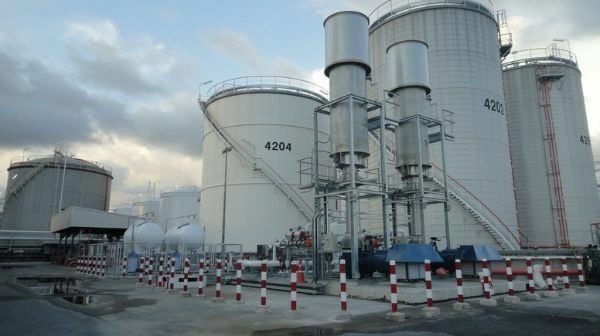Thailand’s oil reserves expansion faces financial challenges

Plans to bolster Thailand’s strategic petroleum reserve (SPR) are encountering pushback from industry executives due to financial constraints. Thailand’s Energy Minister, Pirapan Salirathavibhaga, spearheaded an initiative to increase national oil reserve security by expanding the SPR as detailed in the 2024 oil plan.
Pirapan aims to increase Thailand’s oil reserves, both crude and refined, from 50 days to 90 days of coverage. This measure is intended to ensure the country has sufficient oil supplies in the event of disruptions from major suppliers. The oil plan revealed last year’s oil import destinations, with the majority sourced from the Middle East.
“Last year, 53% of total crude oil imports came from the Middle East, with 11% from the US, 10% from Malaysia and Indonesia, and the remaining 26% from other regions.”
If the new SPR plan is approved, the total oil reserves would need to increase by 10 billion litres beyond current levels, according to an anonymous representative from an oil refinery company. However, the representative highlighted the significant financial hurdles of this plan.
“It is hardly possible for the government and oil companies to buy such a huge amount of oil and invest in oil storage facilities because of budget constraints.”
The fiscal 2025 budget, starting on October 1, is already heavily allocated to other projects, including a 10,000-baht digital money handout. This leaves limited funds available for increasing the SPR, the source indicated, further remarking on the difficulties in sourcing funding from operators within the oil industry.
Funding difficulties
“It is difficult to ask oil traders and oil refinery operators to increase the SPR.”
Many oil refineries have recently invested heavily in upgrading their diesel quality to meet Euro 5 environmental emission standards, effective since January.
A representative from the sugar cane crushing industry, suggested the government focus more on using ethanol to replace fossil fuel-derived oil. Sugar cane, a raw material for ethanol, can be mixed with gasoline to produce various gasohol formulas.
“Blending ethanol with gasoline or mixing palm oil-derived methyl ester with diesel can increase national oil security because the raw materials can be sourced in Thailand, without worrying about disruptions in global crude oil supply.”
Relevant government agencies are currently soliciting public opinions on the oil plan in a hearing that runs until July 12. The oil plan is set to be in effect from 2024 to 2037.
Pirapan has instructed the Department of Energy Business to study the SPR plan further. In 2013, the International Energy Agency urged Thailand to consider increasing its SPR, but the proposal was shelved due to a crude oil surplus in 2014, driven by significant shale oil production in the US, reported Bangkok Post.
Latest Thailand News
Follow The Thaiger on Google News:


























